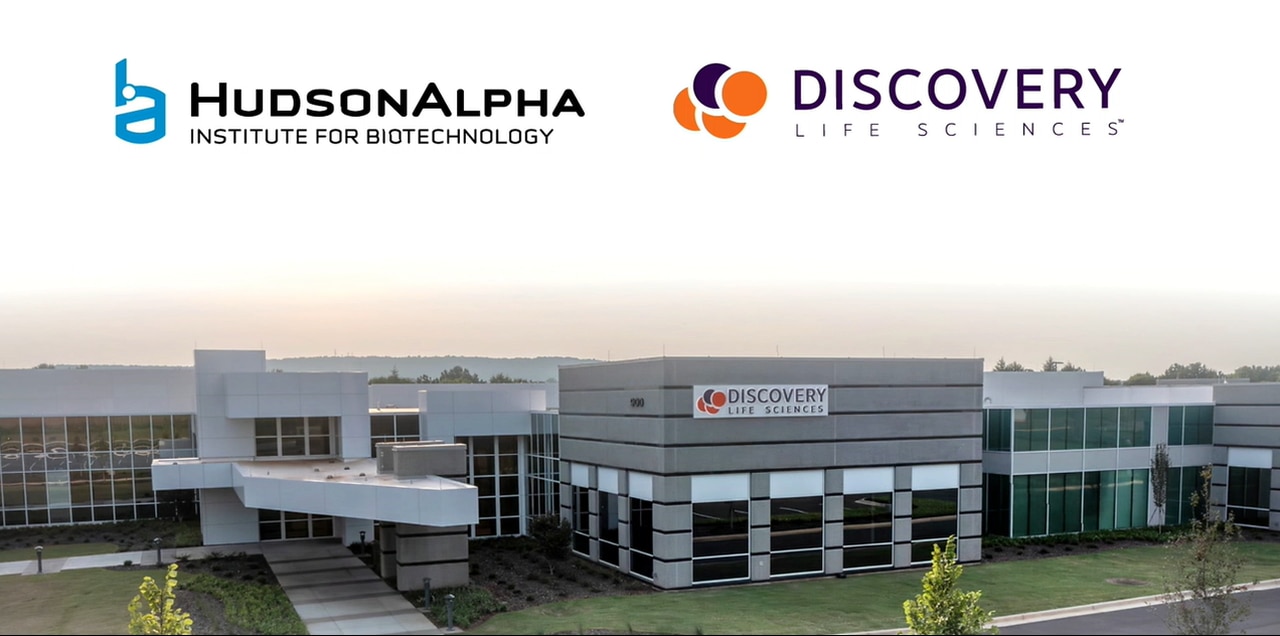New state-supported genomic research center in Huntsville opened by governor
Alabama Gov. Kay Ivy came to Huntsville today to cut the ribbon on a new biotech company bringing 250 new jobs to the area in the growing field of genetic medicine.
Discovery Life Sciences, the new company, provides genetic samples and data to researchers worldwide studying the history of diseases and disorders. Genetic research is also used to develop new treatments for patients by learning and considering a patient’s particular genetic makeup and its possible response to certain medications.
The company already operates in Europe and in America with facilities in Boston, Santa Barbara and Alameda, Calif. It has a total employment of 750 people, a HudsonAlpha spokesman said.
The $48.5 million Discovery Life Sciences building opened Oct. 11, 2023 in Huntsville, Ala.’s Cummings Research Park. The company provides genetic samples and data to companies researching genetic medicine.
Ivy said it was a “privilege to be a friend of HudsonAlpha” because it “continuously puts our state on the map” with companies like this one. Government should be a partner with business, Ivey said, adding, “We have built the best business climate in America.”
The state has invested in the biotechnology campus on Huntsville’s west side now home to the company since the park’s startup in 2008. A study by the University of Alabama in Huntsville said the return on that investment has already topped $4 billion. The campus is located in Cummings Research Park, one of the largest research parks in the nation.
The financial breakdown of the latest expansion for the genetics company was $48.5 million for the overall park expansion and $38 million for the DLS building, a HudsonAlpha spokesman said. Funding sources were the state ($38 million), Madison County ($3 million), City of Huntsville ($2 million), philanthropy & HudsonAlpha itself ($5.5 million).
HudsonAlpha President Neil Lamb said Discovery Life Sciences is “the largest laboratory of its kind” in America. Company President Marshall Schreeder, Jr., a Huntsville native, “came home to Alabama” to bring the company to Huntsville, Lamb said.
Genomic medicine or the study of how certain individuals might react to certain medications “is already making an impact in the fields of oncology, pharmacology, rare and undiagnosed diseases, and infectious disease,” according to the National Human Genome Research Institute.
